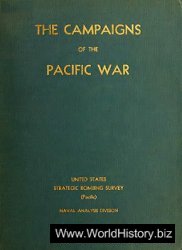Pragmatism is a philosophy that significantly influenced education and social reform movements in the period from 1870 to 1900 and beyond. Actually, some scholars contend that pragmatism is not a philosophy but rather a way to think about a problem, create possible solutions, and then test or evaluate them against their consequences. Pragmatism was a response to the seemingly fixed and fatalistic evolutionary determinism of Herbert Spencer and William Graham SuMNER. Rather than accept and adjust to their rigid concept of evolution, pragmatists used the language of evolution and argued that humans were “organisms” who lived in and could change their environment. People were not helpless and passive in the throes of a master law; rather, through their minds and behavior they could alter their circumstances and use knowledge for reform and progress. Pragmatists saw the world as dynamic, full of possibilities, and not governed by eternal, cosmic moral laws with fixed behavioral standards. There was no final analysis, for all analyses are continuously criticized and revised. This belief system won favor with many Americans living through the last three decades of the 19th century as the American landscape and its beliefs were drastically affected by industrialization, urbanization, the growth of a national integrated market and communication system, and unprecedented large waves of immigration.
Charles Sanders Peirce (1839-1914) was a very influential pragmatist philosopher. Trained as a mathematician and astronomer, he emphasized the presence of chance and possibility in nature. Writing in 1878, he argued that our ideas become clearer when people understand that their knowledge comes from human experience and activity. The meaning of an idea did not come from an ancient, ethical, or moral belief but rather came from our understanding and giving value to its practical, immediate effects. Truth was derived from experience and could be best approached by rigorously testing hypotheses with the tools of logic. He had, in his words, a “laboratory habit of mind.” Peirce, however, was difficult to understand and had little direct influence on the public at large.
In contrast, William James, who was influenced by Peirce, wrote with clarity and popularized pragmatism. Reflecting his training as a psychologist, James emphasized the role of the human will and the personal and emotional satisfaction that ideas gave the individual. Ideas—even religious beliefs—were true if they worked. People should judge ideas by their factual results. But by that test, what is true at one time and for one person may not be true for another person at another time. Essentially, ideas and truths are on trial and subjected to constant evaluation and reshaping. James perceived that the universe was open and an “unfinished experiment,” and he believed that people should not follow abstract, previously agreed upon solutions to problems. If truth was the goal, truth was what reality brought to an idea. The idea’s value came from its utility. Threaded through his beliefs was the central theme that humans, through their intelligence, could be actively involved in creating and managing their lives. They simply had to carefully learn from their daily experiences and constantly test their behavior against its results. If one way of doing something did not work, then change was called for. If one result did not satisfy, then one should recognize the situation and find other experientially tested means to meet personal or organizational goals. This philosophy made sense in a society whose credo was that self-made individuals, through hard work and a bit of luck, could achieve their dreams.
While James’s stress was on the personal and emotional, John Dewey, a late 19th - and early 20th-century educational philosopher and teacher-educator, applied pragmatic principles to social issues. Since society was unfinished, the experimental method should be utilized to solve social problems. Study the history of a problem, research solutions, try them out, and adjust them to make them work. Dewey’s influence in the classroom was and still is enormous. He taught that teachers should always know the needs and interests of students. They should not impose morals, knowledge, or skills on children. While children had to learn reading, writing, computing, and civics, they needed to construct a path of learning from their own circumstances to these unknown skills and beliefs. If children in school learned how to solve problems, as adults they might transfer these experiences into political life and reform institutions.
In other applications of pragmatism, educators in universities conducted research on reforming electoral systems, civil services, taxation, and governmental services. Specialists in agriculture carried their research from universities into the villages and fields of American farmers, showing families how they could raise productivity and improve their lives. For many Americans, politics, government actions, and human relationships were not determined by unchangeable economic and social laws or absolute moral standards. For them, human needs and the best methods for fulfilling them were informed by pragmatic ethics.
Further reading: Bruce Kuklick, The Rise of American Philosophy: Cambridge, Massachusetts, 1860-1920 (New Haven, Conn.: Yale University Press, 1977); David W. Marcell, Progress and Pragmatism: James, Dewey, Beard, and the American Idea of Progress (Westport, Conn.: Greenwood, 1974); Louis Menand, The Metaphysical Club: A Story of Ideas in America (New York: Farrar Straus Giroux, 2001).
—Harry Stein




 World History
World History









